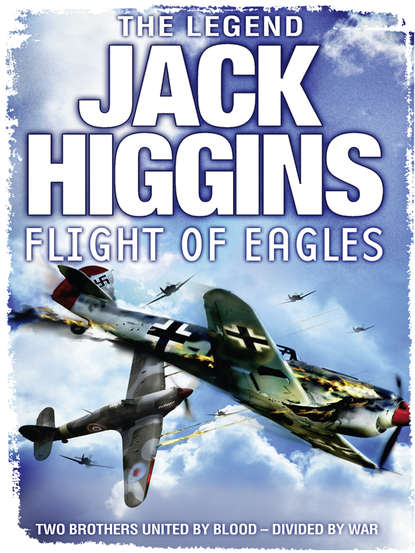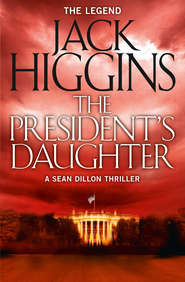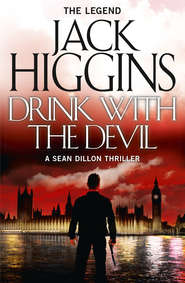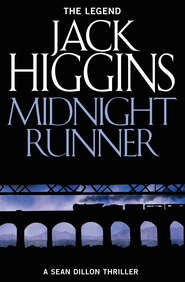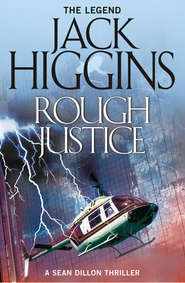По всем вопросам обращайтесь на: info@litportal.ru
(©) 2003-2024.
✖
Flight of Eagles
Автор
Год написания книги
2018
Настройки чтения
Размер шрифта
Высота строк
Поля
I was stunned but managed to say, ‘What have you got to do with all this?’
He took a piece of paper from his wallet and passed it over. ‘There’s a crude map for you and a bar called Heini’s. If things go wrong, go there and tell the barman that your accommodation is unsatisfactory and you must move at once. Use English.’
‘And what’s that supposed to mean?’
‘That someone will come for you. Of course, if everything works, you come back on the tour bus, but that would imply a perfect world.’
I said, ‘You’re part of this. Me, Wilson. My uncle’s not here, yet you are. What the hell goes on?’
I suddenly thought of my desk at the office in Leeds, the Astoria ballroom on a Friday night, girls in cotton frocks. What was I doing here?
‘You’re a fly in the web, just like me in the Gestapo. You got pulled in. All so casual, but no way back.’ He finished his schnapps and moved to the door. ‘I’m on your side, boy, remember that.’ He closed the door and was gone.
The tour bus took us through Checkpoint Charlie, everything nice and easy. There were tourists from all over the world on board. On the other side, the border police inspected us. In my case, my tourist visas and Irish passport. No problems at all.
Later, at lunch at a very old-fashioned hotel, the guides stressed that if anyone got lost on any of the tours, they should make for the hotel, where the coach would leave at five.
In my case, the instructions in the brown envelope told me to be at my destination at four. I hung in there for two boring hours and dropped out at three-thirty, catching a taxi at just the right moment.
The East Germans had a funny rule at the time. The Christian church was allowed, but you couldn’t be a member of the Communist Party and go to church – it would obviously damage your job prospects. The result was that the congregations were rather small.
The Church of the Holy Name had obviously seen better days. It was cold, it was damp, it was shabby. There was even a shortage of candles. There were three old women sitting waiting at the confessional box, a man in a brown raincoat praying in a pew close by. I obeyed my instructions and waited. Finally, my turn came and I entered the confessional box.
There was a movement on the other side of the grille. I said, ‘Forgive me, Father, for I have sinned,’ and I said it in English.
‘In what way, my son?’
I replied as the instructions in the envelope had told me. ‘I am here only as God’s messenger.’
‘Then do God’s work.’
An envelope was pushed under the grille. There was silence, the light switched off on the other side. I picked up the envelope and left.
I don’t know how long it took me to realize that the man in the brown raincoat was following me. The afternoon was darkening fast, rain starting to fall and I looked desperately for a taxi with no success. I started to walk fast, moving from street to street, aiming for the River Spree, trying to remember the city from the old days, but at every corner, looking back, there he was.
Turning into one unexpected alley, I ran like hell and suddenly saw the river. I turned along past a line of decaying warehouses and ducked into an entrance. He ran past a few moments later. I waited – silence, only the heavy rain – then stepped out, moving to the edge of the wharf.
‘Halt! Stay exactly where you are.’
He came round the corner, a Walther PPK in his left hand, and approached.
I said, in English, sounding outraged, ‘I say, what on earth is this?’
He came close. ‘Don’t try that stuff with me. We both know you’ve been up to no good. I’ve been watching that old bastard at the church for weeks.’
He made his one mistake then, coming close enough to slap my face. I grabbed his right wrist, knocked the left arm to one side and caught that wrist as well. He discharged the pistol once and we came together as we lurched to the edge of the wharf. I turned the Walther against him. It discharged again and he cried out, still clutching his weapon, and went over the edge into the river. I turned and ran as if the hounds of hell were at my heels. When I reached the hotel, the coach had departed.
I found Heini’s bar an hour later. It was really dark by then. The bar, as was to be expected so early in the evening, was empty. The barman was old and villainous, with iron-grey hair and a scar bisecting his left cheek up to an empty eye socket. I ordered a cognac.
‘Look,’ I said in English. ‘My accommodation is unsatisfactory and I must move at once.’
It seemed wildly crazy, but to my surprise, he nodded and replied in English. ‘Okay, sit by the window. We’ve got a lamb stew tonight. I’ll bring you some. When it’s time to go, I’ll let you know.’
I had the stew, a couple more drinks, then he suddenly appeared to take the plates. There were half a dozen other customers by then.
‘Cross the street to the wharf where the cranes are beside the river. Black Volkswagen limousine. No charge, just go.’
I did as I was told, crossed the road through the rain and found the Volkswagen. In a strange way, it was no surprise to find Konrad Strasser at the wheel.
‘Let’s go,’ he said.
I climbed in. ‘What’s this, special treatment?’
‘Decided to come myself. What was your score on the border? Two Russians? Well, you’re now an Ace. A Stasi agent went into the Spree tonight.’
Stasis were members of the East German State Security Police.
I said, ‘He didn’t give me a choice.’
‘I don’t imagine he would.’
We drove through a maze of streets. I said, ‘Coming yourself, was that in the plan?’
‘Not really.’
‘Risky, I’d have thought.’
‘Yes, well, you are family in a way. Look, the whole thing’s been family. You, the border, your uncle, me, the old Gestapo hand. Sometimes we still have choices. I did tonight and came for you. Anyway, we’re returning through a backstreet border post. I know the sergeant. Just lie back and go to sleep.’ He passed me a half-bottle. ‘Cognac. Pour it over yourself.’
The rain was torrential as, minutes later, we drove through an area where every house had been demolished, creating a no-man’s-land protected from the West by barbed-wire fences. Of course, the Berlin Wall had not been built in those days. There was a red and white barricade, two Vopos in old Wehrmacht raincoats, rifles slung. I lay back in the seat and closed my eyes.
Konrad braked to a halt and one of the men, a sergeant, came forward. ‘In and out, Konrad,’ he said. ‘Who’s your friend?’
‘My cousin from Ireland.’ Konrad offered my Irish passport. ‘Pissed out of his mind.’ The aroma of good cognac proved it. ‘I’ve got those American cigarettes you wanted. Marlboros. I could only manage a thousand, I’m afraid.’
The sergeant said, ‘My God!’, thrust my passport back and took the five cartons Konrad offered. ‘Come again.’
The bar lifted and we drove forward into the bright lights of West Berlin.
In my uncle’s flat, Konrad helped himself to whisky and held out a hand. ‘Give me the envelope.’
I did as I was told. ‘What is it?’
‘You don’t need to know.’
I started to get indignant but then decided he was right.
‘Look,’ I said. ‘I’ve been meaning to ask. You told me I was a bagman for the SAS. I was given the job by a Major Wilson, but by a strange coincidence, you’re involved. Why is that?’





